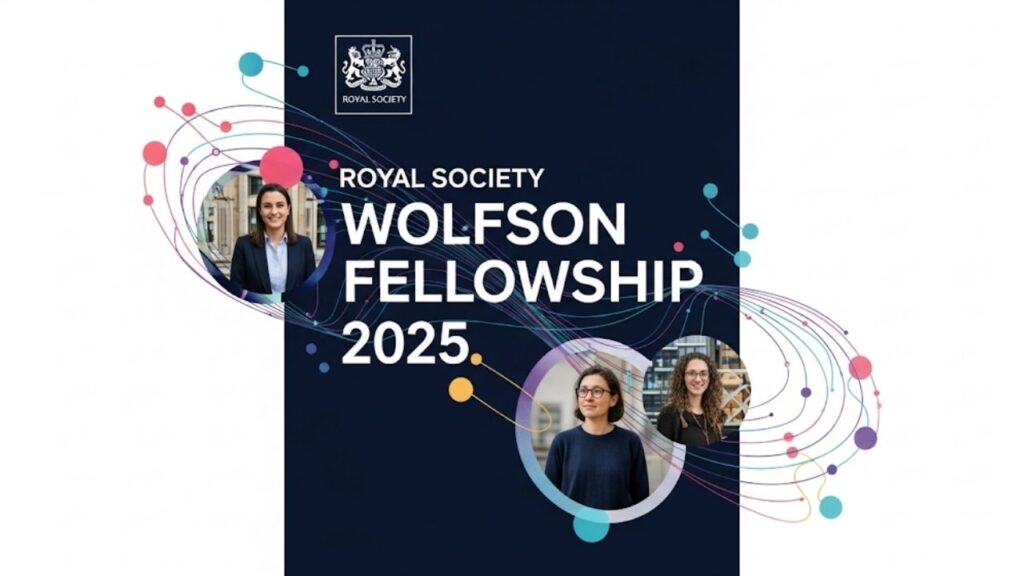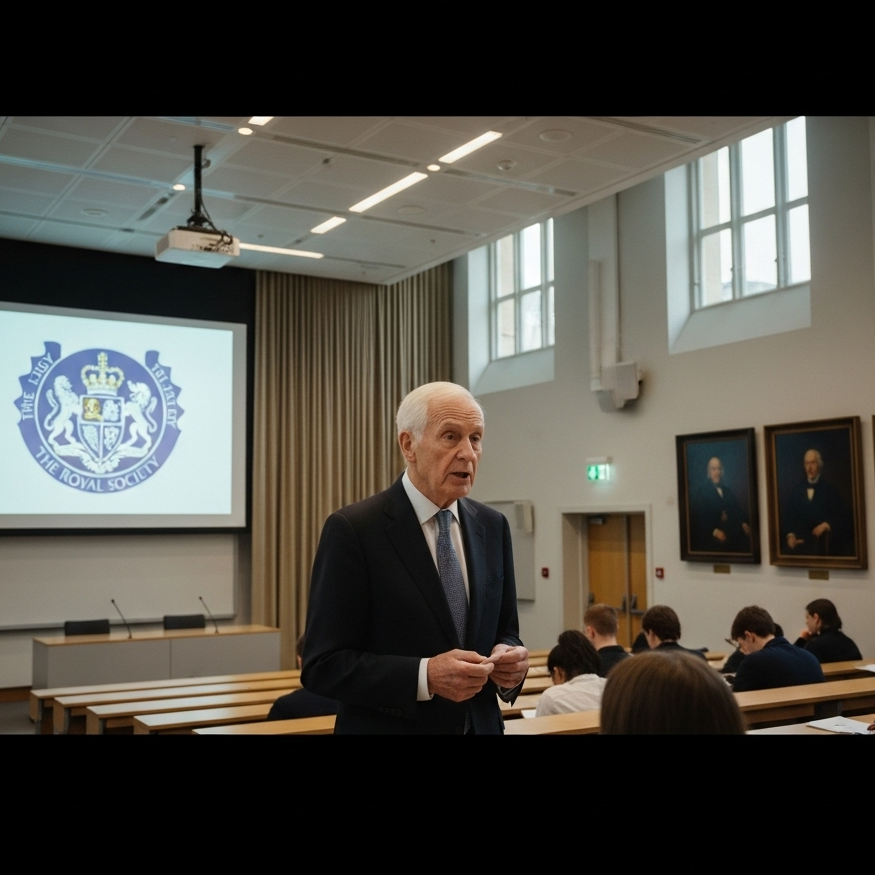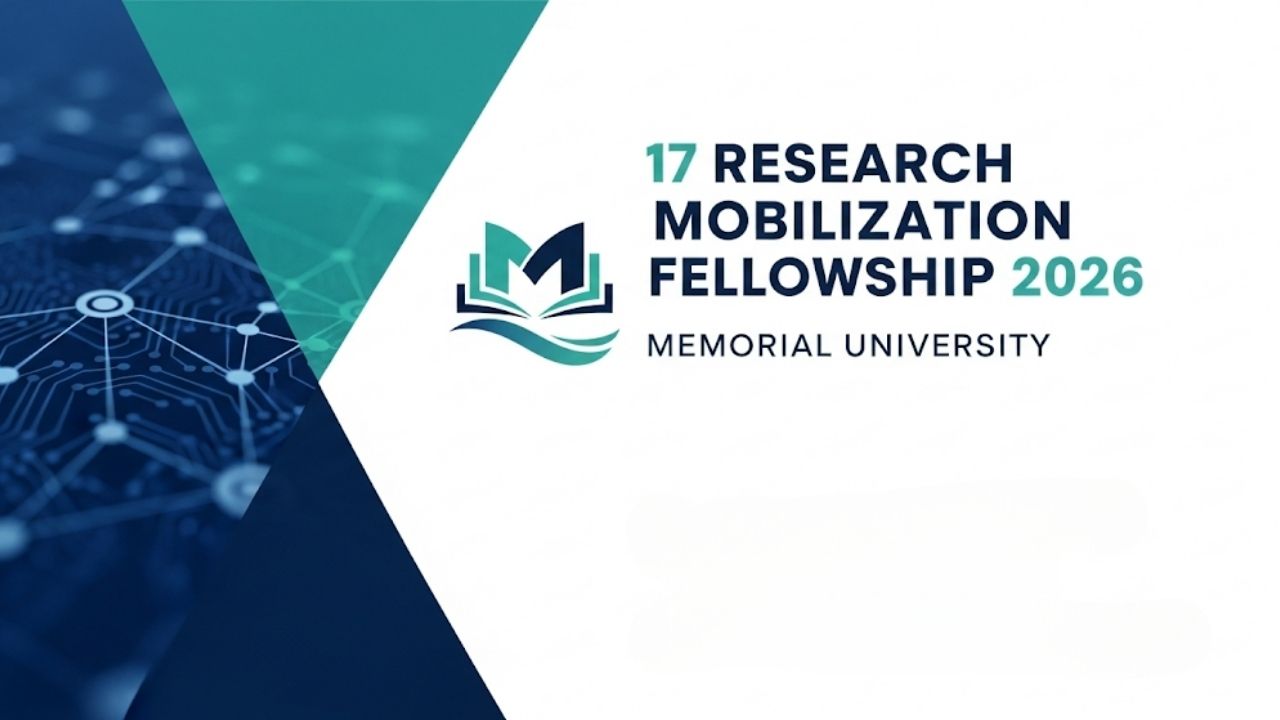Navigating the world of prestigious research funding can feel like aiming for a distant star. But with the right map, that star can be well within your reach. This guide is designed to be that map for the Royal Society Wolfson Fellowship 2025, one of the UK’s most distinguished opportunities for world-leading scientists. If you are an exceptional senior researcher based overseas, with your sights set on making a significant impact in the United Kingdom, you’ve come to the right place. We’re here to break down the process, demystify the requirements, and provide actionable advice to help you craft a compelling application.

This isn’t just about funding; it’s about finding a new home for your research, a place where your work can flourish and inspire the next generation. The journey requires dedication, but the rewards—both professional and personal—are immense. Let’s embark on this journey together.
Royal Society Wolfson Fellowship 2025
| Key Feature | Detail |
| Objective | To enable UK universities to recruit and retain outstanding senior research scientists from overseas. |
| Funding | Up to £300,000 over five years. |
| Key Eligibility | Mid- to senior-career researchers of any nationality, currently based outside the UK, with a firm job offer from an eligible UK institution. |
| Application Round | Round 2, 2025: Opens 11 June 2025, Closes 4 September 2025. |
Understanding the Prestige and Purpose
Co-funded by the esteemed Royal Society and the generous Wolfson Foundation, this fellowship is a strategic investment in the UK’s scientific future. Its primary goal is to enrich the UK research landscape by attracting top-tier international talent. Unlike grants that solely fund a project, this fellowship is about you—the researcher. It’s designed to provide the stability and flexibility needed to establish a significant research program and build a team.
This is more than a standard research grant; it is a powerful recruitment tool for UK institutions. This means the application process is a unique partnership between you and your prospective UK host university or research institution.

Are You the Right Candidate? Decoding the Eligibility Criteria
Before diving into the application, it’s crucial to ensure you align with the fellowship’s ideal candidate profile. The Royal Society is looking for established researchers who are leaders in their field.
The Essentials Checklist:
- Career Stage: You are a mid- to senior-career researcher. This isn’t for early-career postdocs. The panel will be looking for a significant track record of independent, high-quality research.
- International Status: You must be currently based outside of the UK. The fellowship is specifically for recruiting talent to the UK. Researchers looking to move between UK institutions are not eligible.
- Host Institution Offer: You must have a confirmed offer of employment from an eligible UK university or not-for-profit research institution. This is a non-negotiable prerequisite. Your appointment should coincide with the start of the fellowship.
- Research Area: Your research must fall within the Royal Society’s remit of the natural sciences. This includes, but is not limited to, biological sciences, chemistry, engineering, mathematics, and physics. Clinical medicine and social sciences are generally not covered.
- Nationality: The fellowship is open to researchers of any nationality. Those requiring a visa can be supported through the Global Talent Visa route, for which this fellowship provides a fast-track endorsement.
In my experience advising senior academics, the most common point of confusion is the “firm offer” requirement. You must have this in hand before the application process can be finalized. This means you should be in advanced discussions with your potential UK host institution well ahead of the fellowship deadlines.
The Financial Powerhouse: What the Fellowship Offers?
A sum of up to £300,000 over five years provides substantial and flexible support. This funding is designed to give you the resources to hit the ground running. Here’s a breakdown of what it can cover:
- Salary Enhancement: The fellowship can contribute up to 20% of your total salary, making your compensation package more competitive.
- Research Team: You can allocate funds for research assistance, including the costs of postdoctoral researchers and PhD students.
- Running Costs: This includes consumables, travel for conferences and collaboration, and access to essential facilities.
- Equipment: You can request funds for small pieces of equipment, typically up to £10,000.
- Relocation and Visa Costs: The fellowship thoughtfully provides support for the logistics of moving, covering visa and relocation expenses for you and your dependents (partner and children). This can even be requested above the main grant cap if well-justified.
This flexibility is one of the fellowship’s most attractive features. It empowers you to build your research program according to your specific needs and vision.

The Application Journey: A Step-by-Step Guide?
The application process for the Royal Society Wolfson Fellowship is distinct because it is initiated by your host institution. Here’s how it works:
Step 1: Secure Your Position
Your first and most critical task is to secure a senior academic position at a UK university or eligible research institution. Your research vision must align with the institution’s strategic goals. They will be your nominator and partner in this process.
Step 2: The Nomination
Once you have a firm offer, the Vice-Chancellor, Pro-Vice-Chancellor for Research, or a director of your host institution must nominate you. They will contact the Royal Society’s Grants Office to receive a nomination link.
Step 3: Your Application
After the nomination is approved, your nominator will receive a link to invite you to complete the full application on the Royal Society’s grant management system, Flexi-Grant®.
Step 4: Crafting a World-Class Proposal
This is where you make your case. Your application will be judged on four key pillars:
- The Researcher: Your track record, international standing, and potential for continued excellence. Evidence includes high-impact publications, keynote conference invitations, and experience in mentoring junior researchers.
- The Research Vision: The quality, originality, and feasibility of your proposed research program. It should be ambitious yet achievable.
- The Strategic Fit: The synergy between you and the host institution. How will your presence benefit the institution’s research environment and strategy?
- The Benefit to the UK: How your research will contribute to the UK’s scientific standing and wider society.
Step 5: The Review Process
Your application undergoes a rigorous multi-stage review.
- It is first assessed by two members of the selection panel with relevant expertise.
- A longlist is then created and sent out for independent peer review.
- Based on these reviews, a final shortlist is compiled.
- The selection panel meets to discuss the shortlisted applications and make the final funding recommendations.

Tips for a Standout Application
Having seen many successful applications, I can say that the winners do more than just meet the criteria—they tell a compelling story.
- Collaborate Closely with Your Host: Your application should be a joint effort. Work with your head of department and the university’s research support office. Their statement of support is critical and must clearly articulate your strategic value to the institution.
- Don’t Be Modest, Be Factual: Clearly articulate your achievements. Use metrics where possible (citation counts, journal impact factors, grant amounts won) but also explain the significance of your contributions to your field.
- Paint a Vivid Research Picture: Your research proposal should be exciting and understandable to a broad scientific panel. Avoid overly dense jargon. Explain the ‘why’ as much as the ‘how’. What is the fundamental problem you are solving?
- Think Long-Term: The fellowship is for five years. Present a clear vision for what you will achieve in this timeframe and how it will lay the groundwork for future research. Mention plans for building a team and mentoring younger scientists.
Your Future Awaits
The Royal Society Wolfson Fellowship 2025 is a gateway to a new chapter of your career. It offers the freedom, funding, and prestigious platform to conduct transformative research in one of the world’s most dynamic scientific communities. The application process is demanding, but it is a challenge worthy of a research leader.
Your journey starts with a conversation. Reach out to the UK institution that you believe is the best home for your ideas. Start building that relationship now. With careful planning and a clear vision, you can position yourself as an unmissable candidate for this incredible opportunity.
Your Ultimate Guide to the Switzerland Cyber Defense Fellowship 2025
FAQs
Q1: Can I apply if I have recently moved to the UK?
A: The spirit of the scheme is to recruit from overseas. If you have very recently taken up your appointment in the UK, your institution should contact the Royal Society to clarify eligibility.
Q2: Is there an age limit for applicants?
A: No, there is no age limit. The fellowship is aimed at mid- to senior-career researchers, based on their experience and track record, not their age.
Q3: What is the success rate for the Royal Society Wolfson Fellowship?
A: The Royal Society does not typically publish success rates for specific schemes, but given its prestige, it is highly competitive. A strong, strategic application is essential.
Q4: Can the fellowship be held part-time?
A: Yes, the Royal Society offers flexibility for fellows to hold their awards part-time for reasons such as caring responsibilities or health-related issues.










